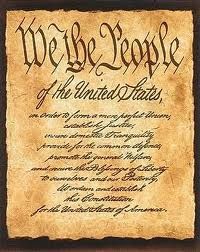 With the obstruction of a very united minority, there has been a great deal of debate about the filibuster and the reform of Senate Rule 22. In a New York Times op-ed, Former Vice President Walter F. Mondale, recalls how in 1975 when he was a Senator, the Senate voted to reduce the number of votes required to end filibuster from 67 votes, a super majority, to the current 60 votes. Clearly, he states this was not enough. Filibuster threats and cloture votes blocked legislation nearly 100 times in the 111th Congress.
With the obstruction of a very united minority, there has been a great deal of debate about the filibuster and the reform of Senate Rule 22. In a New York Times op-ed, Former Vice President Walter F. Mondale, recalls how in 1975 when he was a Senator, the Senate voted to reduce the number of votes required to end filibuster from 67 votes, a super majority, to the current 60 votes. Clearly, he states this was not enough. Filibuster threats and cloture votes blocked legislation nearly 100 times in the 111th Congress.
Mr. Mondale argues that essentially, these rules abrogate the Constitution which only requires a 67 vote majority for the approval of treaties, “in all other instances it must be assumed that the Constitution requires only a majority vote”. In other words, many of the Senate rules are unconstitutional and could be done away with on a simple majority procedural vote under Parliamentary rules. That was the “nuclear option” that was used as a threat by the Republicans to force the Democrats to capitulate when they were n the minority.
The Constitution is clear that under Article I, Section 5 of the Constitution: “Each House may determine the rules of its proceedings.” However, it is very explicit about the few instances where a super majority vote is needed, it must be assumed that the Constitution requires only a majority vote in all other cases.
Congressional expert and Washington University in St. Louis political science professor Steven S. Smith, has testified before U.S. Senate Committee on Rules and Administration that there is an unhealthy exploiting of the Senate rules to block important legislation and limit debate. Prof. Smith also stated that
“wishing for better behavior” on the part of senators and their leaders won’t reverse the consequences of “two decades of intensifying parliamentary warfare” that has contributed to the demise of the appropriations process, more packaging in omnibus bills, and a shift of policy decision-making from committees to party leadership offices, among other changes
He proposed that these changes be made:
(M)ore clearly protect each senator’s opportunity to debate and offer amendments;
(L)imit debate on motions to proceed and combine and limit debate on the three motions to go to conference;
(L)imit debate on appropriations bills and executive calendar business; and
(W)here debate is not otherwise limited, allow a simple majority to eventually close debate.
On of the rules being considered is forcing the filibustering Senator to actually stay on the floor speaking for the duration of the filibuster, a la, Sen. Bernie Sanders’ recent 8 and a half hour tour de force on the Senate floor. There is also a need to end the policy of “secret holds” which prevents a bill or nomination from being considered even though it has cleared committee. The Democrats need to stand firm on rules reform, otherwise, we are in for an even more obstructive Senate in the 112th Congress.

7 comments
Skip to comment form
Author
at 60 to end debate. A simple majority would turn the Senate into a mirror image of the House where the minority party might as well not show up. Democrats will likely lose the majority in the Senate in 2012.
What is encouraging are the proposals to make the threat of a filibuster more difficult on the party wishing to extend debate.
We’ll see what transpires on the January 5th. It should be a very interesting day on the Senate floor.
and take a stand.
We’ll need the filibuster to hold off the blue dogs and republicans in the senate, the house and the president from selling out social security.